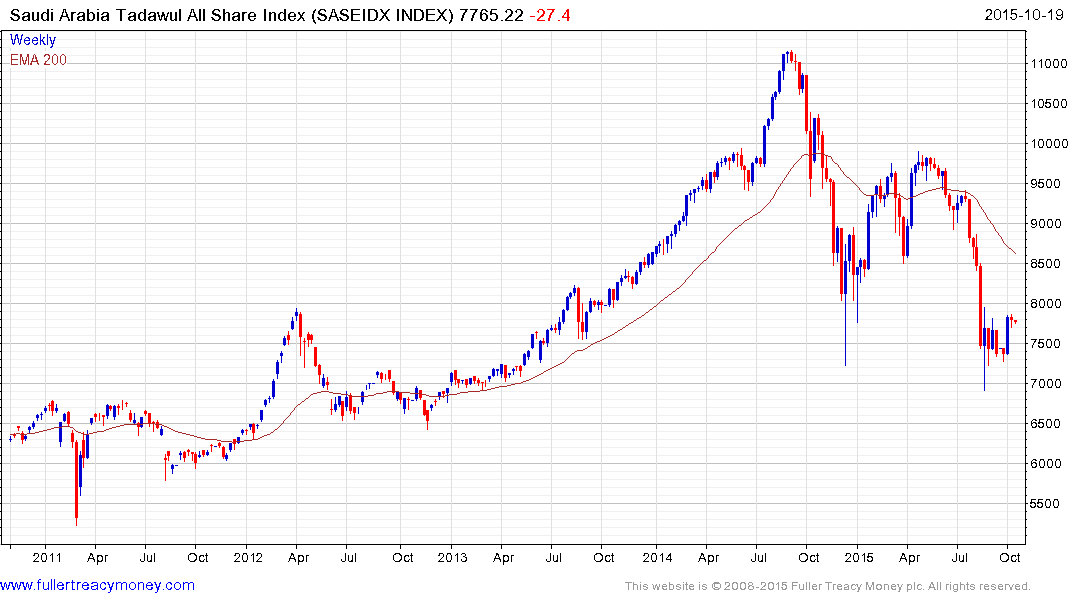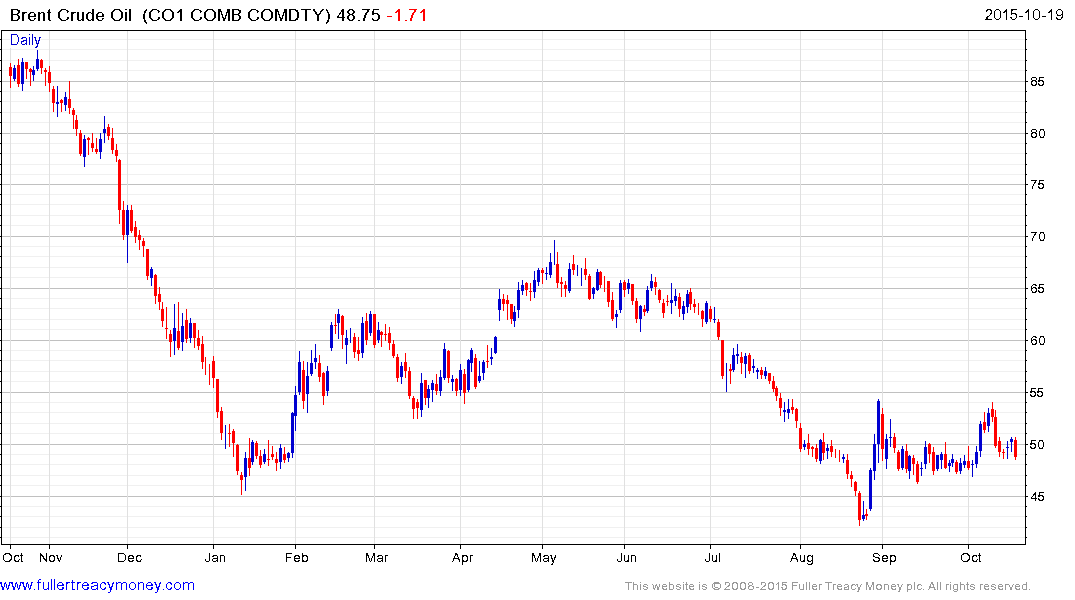Saudi Arabia Said to Delay Contractor Payments as Oil Slumps
This article by Matthew Martin for Bloomberg may be of interest to subscribers. Here is a section:
The lower price of crude -- it’s fallen by about half in the past 12 months -- coupled with the kingdom’s spending plans, will leave Saudi Arabia with a budget deficit exceeding 400 billion riyals this year, according to the International Monetary Fund. The aggregate deficit for 2015 to 2017 is likely to exceed $300 billion, according to a report by HSBC. The government has ordered a series of cost-cutting measures, including a freeze on new construction contracts and bans on buying new vehicles or furniture, two people with knowledge of the matter told Bloomberg earlier this month.
“We have already seen a pick-up in loan growth at some of the Saudi banks in Q2 as contractors borrow to fund their cash flows as a result of a slowdown in payments,” Aqib Mehboob, a senior analyst at Saudi Fransi Capital, said by phone from Riyadh Monday.
Still, Saudi Arabia’s public debt is among the world’s lowest, with a gross debt-to-GDP ratio of less than 2 percent in 2014. Real estate stocks have also outperformed the Tadawul All Share Index. The Tadawul All Share Real Estate Development Industries Index advanced 7.5 percent in 2015 through Sunday, compared with a 6.5 percent decline in the benchmark stock gauge.
Saudi Arabia, the world’s largest oil exporter, has led the Organization of Petroleum Exporting Countries in boosting production to defend market share, abandoning its previous role of cutting output to boost prices. The country is now storing record amounts of crude amid a decline in shipments. Exports dropped to 7 million barrels a day in August from 7.28 million in July, while commercial crude stockpiles rose to 326.6 million barrels, the highest since at least 2002, according to data posted on the website of the Riyadh-based Joint Organisations Data Initiative.
Approximately 140 billion riyals of construction contracts were awarded in Saudi Arabia in the first half, a 12.4 percent increase compared with the first six months of 2014, according to a report by Jeddah-based National Commercial Bank.
In addition to the relatively low price of oil, Saudi Arabia is fighting wars on a number of fronts. With Russia now joining the fray the cost of its Syria/Iraq rebel support is only going to get more expensive. That suggests it has more incentive than ever to pump to capacity.
To think of Saudi Arabia as having to go to the market for money is a misrepresentation of just how much capital the kingdom has. Let’s think of the country more as a feudal kingdom than the democracies we are accustomed to. It is not beyond the realm of possibility that the various princes who have accumulated impressive wealth based on the largesse of the crown could be called upon to supply the state with arms, capital or soldiers in just the same way that dukes and earls would have done in feudal Europe. There is no possibility, at the current time, the state will not make good on its obligations. In fact it may end up spending more to insulate the country from such strife on its borders.

The Tadawul Index found at least near-term support in the region of 7000 from late August and a reversionary move remains in evidence. It will need to hold that level if medium-term scope for continued higher to lateral ranging is to be given the benefit of the doubt.

Brent Crude has steadied above $40 over the last few months and that was also close to where it found support in 2008. $40 was also the upper side of the long-term range that prevailed before the commodity bull market so it is a natural area for demand to be reasserted. A significant change in the supply/demand situation as it currently stands would be required for prices to sustain a move below that level.
Nevertheless, oil companies have experienced sharp rallies and a number such as Royal Dutch Shell have closed their overextensions to the trend mean. How well they hold those lows on a pullback will be an indication of whether demand has returned to dominance beyond the short term.
Back to top


